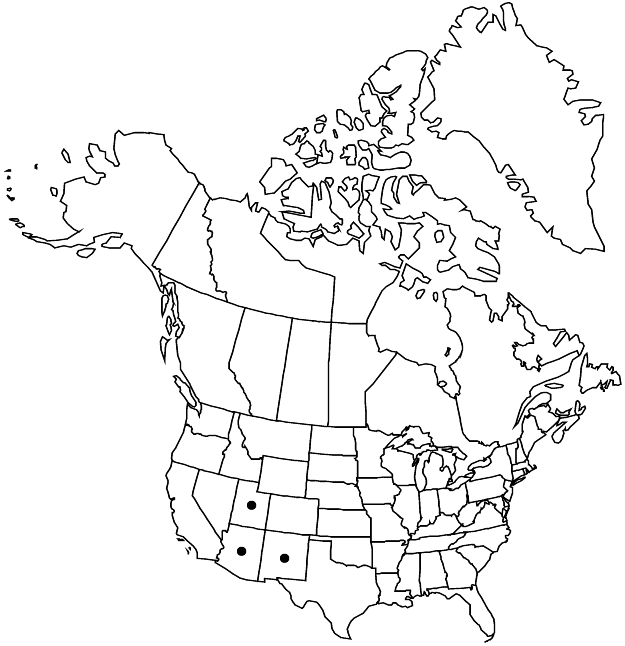Difference between revisions of "Eriogonum subreniforme"
Proc. Amer. Acad. Arts 12: 260. 1877.
FNA>Volume Importer |
imported>Volume Importer |
||
| (4 intermediate revisions by one other user not shown) | |||
| Line 8: | Line 8: | ||
}} | }} | ||
|common_names=Kidney-shaped wild buckwheat | |common_names=Kidney-shaped wild buckwheat | ||
| + | |special_status={{Treatment/ID/Special_status | ||
| + | |code=E | ||
| + | |label=Endemic | ||
| + | }} | ||
|basionyms= | |basionyms= | ||
|synonyms={{Treatment/ID/Synonym | |synonyms={{Treatment/ID/Synonym | ||
|name=Eriogonum filicaule | |name=Eriogonum filicaule | ||
|authority=S. Stokes | |authority=S. Stokes | ||
| + | |rank=species | ||
}} | }} | ||
|hierarchy=Polygonaceae;Polygonaceae subfam. Eriogonoideae;Eriogonum;Eriogonum subg. Ganysma;Eriogonum subreniforme | |hierarchy=Polygonaceae;Polygonaceae subfam. Eriogonoideae;Eriogonum;Eriogonum subg. Ganysma;Eriogonum subreniforme | ||
| Line 36: | Line 41: | ||
-->{{#Taxon: | -->{{#Taxon: | ||
name=Eriogonum subreniforme | name=Eriogonum subreniforme | ||
| − | |||
|authority=S. Watson | |authority=S. Watson | ||
|rank=species | |rank=species | ||
| Line 50: | Line 54: | ||
|publication title=Proc. Amer. Acad. Arts | |publication title=Proc. Amer. Acad. Arts | ||
|publication year=1877 | |publication year=1877 | ||
| − | |special status= | + | |special status=Endemic |
| − | |source xml=https:// | + | |source xml=https://bitbucket.org/aafc-mbb/fna-data-curation/src/2e0870ddd59836b60bcf96646a41e87ea5a5943a/coarse_grained_fna_xml/V5/V5_839.xml |
|subfamily=Polygonaceae subfam. Eriogonoideae | |subfamily=Polygonaceae subfam. Eriogonoideae | ||
|genus=Eriogonum | |genus=Eriogonum | ||
Latest revision as of 22:14, 5 November 2020
Herbs, erect or slight spreading, annual, 1–5(–7) dm, mostly glabrous, usually greenish. Stems: caudex absent; aerial flowering stems erect, solid, not fistulose, (0.2–)0.5–1.5 dm, glabrous except floccose to glabrescent proximally. Leaves basal; petiole (1–)2–6 cm, mostly floccose; blade reniform to orbiculate, (0.3–)1–3.5(–4) × (0.3–)1–4(–5) cm, densely white-tomentose abaxially, hirsute to floccose or glabrous and greenish adaxially, margins plane. Inflorescences cymose, open to somewhat diffuse, 5–40(–50) × 5–35 cm; branches glabrous; bracts 3, scalelike, 1–3 × 1.5–2.5 mm. Peduncles erect or nearly so, straight, filiform, 0.5–2.5 cm, glabrous or rarely floccose at or before anthesis. Involucres turbinate, 0.5–1 × 0.6–0.9 mm, glabrous; teeth 5, erect, 0.2–0.4 mm. Flowers 0.6–1.6(–2) mm; perianth white to rose or rarely yellowish, glabrous or puberulent to sparsely hirsute; tepals monomorphic, lanceolate to spatulate or elliptic to ovate; stamens included to slightly exserted, 0.7–1.4 mm; filaments glabrous. Achenes light to dark brown, 3-gonous, 1.7–2 mm, glabrous.
Phenology: Flowering Apr–Oct.
Habitat: Sandy to gypsophilous or clayey flats and slopes, saltbush, greasewood, blackbrush, and creosote bush communities, oak and pinyon-juniper woodlands
Elevation: 800-2100 m
Distribution

Ariz., N.Mex., Utah.
Discussion
Eriogonum subreniforme is generally rare to infrequent throughout its scattered range in northern Arizona (Apache, Coconino, Mohave, and Navajo counties), northwestern New Mexico (McKinley and San Juan counties), and southern Utah (Garfield, Kane, and Washington counties). Even in a “good” year, the plants are rarely common and never weedy.
Selected References
None.